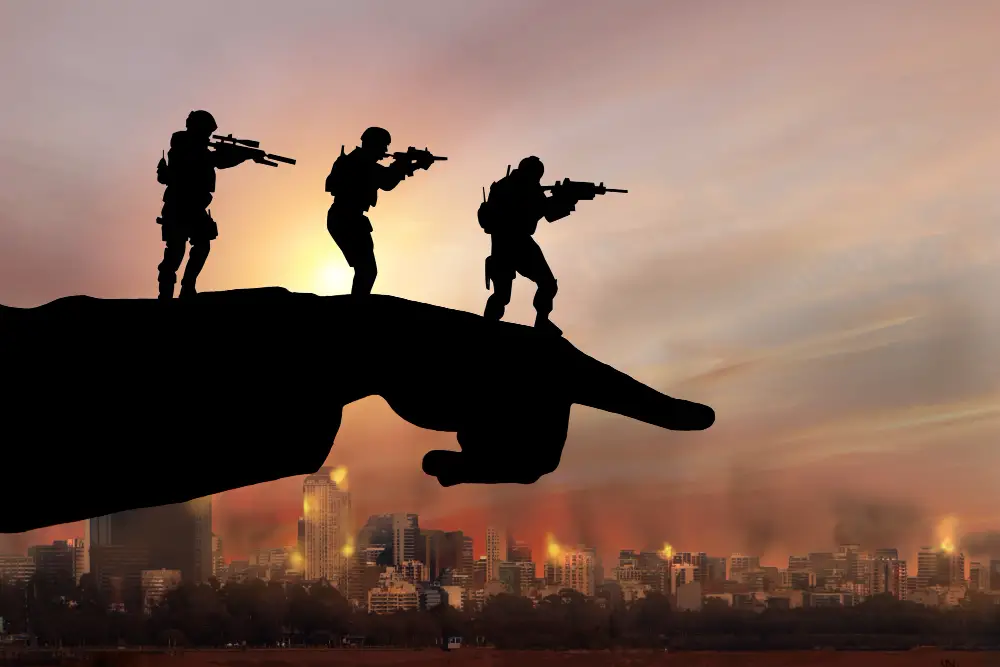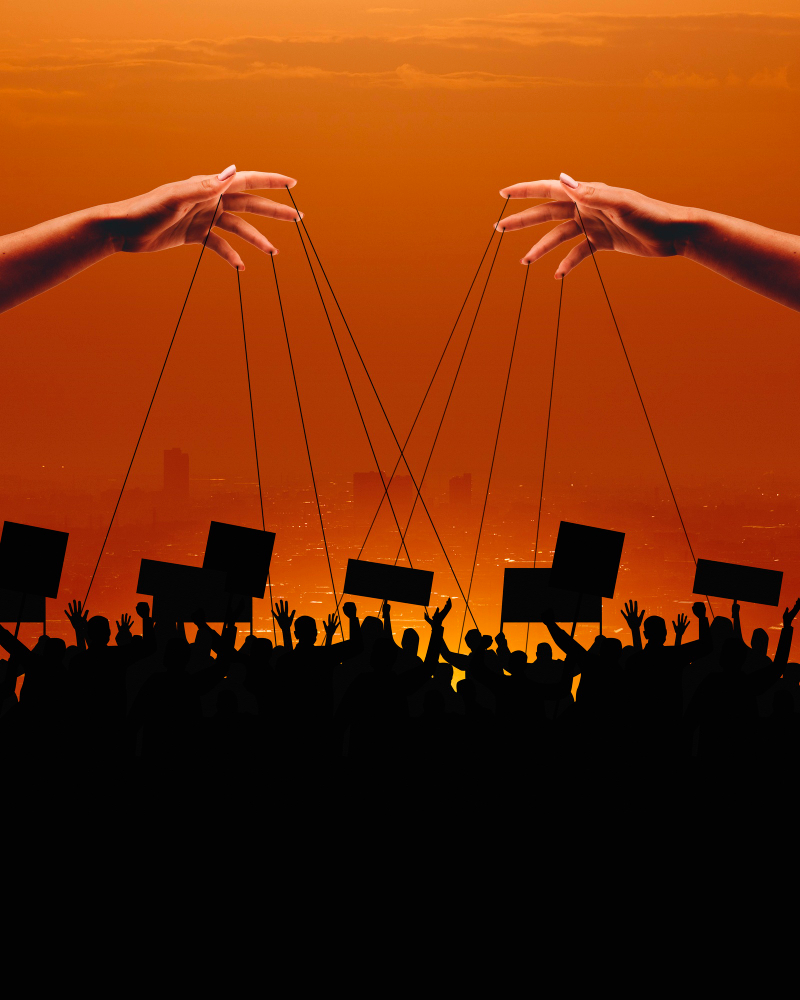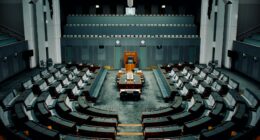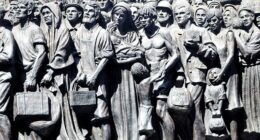Tyranny is oppressive rule marked by abuse of power, while dictatorship is governance concentrated in the hands of a single leader or group.
TL;DR Tyranny Vs. Dictatorship
A dictatorship is a form of government where all power is concentrated in the hands of one individual or a small group. The dictator holds absolute authority and has complete control over political, social, and economic aspects of society. Dictatorships often arise through force or military coup d’états.
Tyranny refers to oppressive rule characterized by an abuse of power and disregard for the rights and freedoms of individuals. A tyrannical government can exist under various forms such as autocracy, monarchy, oligarchy, or even democracy when those in power exploit their positions for personal gain.
What is Tyranny?

Tyranny refers to a form of oppressive and unjust rule where a ruler or government exercises absolute power, often without legal or ethical constraints. In a tyrannical system, the ruler typically governs with cruelty, arbitrariness, and a disregard for the rights and well-being of the governed.
Key characteristics include the suppression of dissent, violation of individual liberties, and the use of force to maintain control. Tyranny can manifest in various political systems, ranging from autocracies and absolute monarchies to more contemporary forms of government.
Historically, tyrannies have been criticized for their erosion of democratic principles and the subjugation of citizens. Philosophers such as Aristotle have explored the dangers of tyranny, emphasizing the importance of balanced governance to prevent the abuse of power.
The term “tyranny” carries a moral and ethical connotation, suggesting not just authoritarian rule but the unjust and often cruel exercise of authority, prompting societies to strive for systems that protect individual freedoms and uphold principles of justice and fairness.
What is Dictatorship?

Dictatorship is a form of government where political authority is concentrated in the hands of a single leader or a small group. In a dictatorship, the ruling power is often centralized, and the leader, known as a dictator, holds significant control without effective checks and balances.
Dictators typically come to power through force, coup d’états, or manipulation of political processes. Key characteristics include the suppression of political opposition, limited political freedoms, and the absence of democratic institutions.
Dictatorships can take various forms, ranging from military dictatorships to personalist regimes, where power is centered around an individual leader. While some dictatorships may emphasize stability and economic development, others are marked by human rights abuses and repression.
The term “dictatorship” carries negative connotations, often associated with authoritarianism and the concentration of power, leading to concerns about abuse, corruption, and the disregard for individual rights.
Historically, dictatorships have been subject to criticism for their impact on democracy, civic participation, and the overall well-being of societies.
Tyranny Vs. Dictatorship – Key differences
| Aspect | Tyranny | Dictatorship |
|---|---|---|
| Definition | Oppressive rule marked by abuse of power. | Concentration of power in the hands of a single leader or a small group. |
| Characteristics | Cruel and unjust exercise of authority, often violating individual rights. | Centralized political authority, suppression of opposition, limited political freedoms. |
| Leadership | May involve a single leader or a ruling class. | Characterized by a single leader (dictator) or a small ruling group. |
| Power Dynamics | Emphasizes the unjust use of power. | Focuses on the concentration of power without specific emphasis on its nature. |
| Origins | May arise in various political systems. | Can emerge through force, coup d'états, or manipulation of political processes. |
| Philosophical Views | Criticized for erosion of democratic principles, emphasis on individual rights. | Criticized for concentration of power, potential for abuses, and limited political freedoms. |
| Ethical Connotations | Implies moral and ethical wrongdoing, often associated with cruelty. | Implies a concentration of power without necessarily emphasizing ethical considerations. |
| Examples | Historical examples include tyrannies in ancient Greece. | Examples include historical figures like Hitler (Nazi Germany) or contemporary authoritarian regimes. |
Characteristics of a Dictatorial Government
A dictatorial government is characterized by specific features that distinguish it from more democratic forms of governance. Some key characteristics include:
- Concentration of Power: Dictatorial governments are marked by a significant concentration of political power, often in the hands of a single leader (dictator) or a small ruling group. Decision-making authority is centralized, and there is limited to no effective separation of powers.
- Limited Political Freedoms: Citizens in a dictatorial government typically have restricted political freedoms. There is often limited or no political pluralism, meaning a lack of genuine political competition and choices for the citizens.
- Suppression of Opposition: Dictatorships commonly employ tactics to suppress political opposition. This may involve censorship, intimidation, imprisonment, or even violence against individuals or groups critical of the government.
- Absence of Democratic Institutions: Dictatorial regimes lack robust democratic institutions. Elections, if held, may be manipulated to ensure the continuation of the ruling regime rather than reflecting genuine popular will.
- Lack of Rule of Law: The rule of law is often weak in dictatorial governments. Legal institutions may be subservient to the ruling authority, and the legal system may be used selectively to target political opponents.
- Limited Civil Liberties: Dictatorships often curtail civil liberties such as freedom of speech, assembly, and association. Citizens may face restrictions on expressing dissenting opinions or participating in peaceful protests.
- State-Controlled Media: The media is often tightly controlled by the government in dictatorial regimes. Independent journalism is restricted, and the state may use media as a tool for propaganda and controlling public narratives.
- Authoritarian Decision-Making: Decision-making tends to be authoritarian, with limited input from citizens or representative bodies. Policies and laws are often imposed without broad consultation or consent.
- Emphasis on Stability: Dictatorial governments may prioritize stability and control over democratic principles. This can lead to the suppression of political dissent in the name of maintaining order and preventing instability.
- Personality Cult or Ideology: Some dictatorial regimes promote a personality cult around the leader or a specific ideology, fostering a sense of loyalty and submission to the ruling authority.
These characteristics collectively contribute to an environment where political power is centralized, dissent is suppressed, and democratic principles are often undermined in favor of maintaining the rule of the dictator or ruling group.
Characteristics of a Tyrannical Government
A tyrannical government exhibits specific characteristics that distinguish it as an oppressive and unjust form of rule. Some key features include:
- Abuse of Power: Tyranny involves the unjust and arbitrary use of power by those in authority. Leaders may exercise their authority without restraint, often for personal gain or to maintain control.
- Violation of Individual Rights: In a tyrannical government, individual rights and liberties are frequently disregarded. Citizens may experience infringements on their freedom of speech, assembly, and other basic rights.
- Lack of Accountability: Tyrannical regimes often operate without effective checks and balances. There is little to no accountability for the actions of the ruling authority, allowing for unchecked abuses of power.
- Suppression of Dissent: Tyranny is marked by the suppression of dissenting voices. Political opposition, criticism, or activism may be met with censorship, imprisonment, or other forms of repression.
- Unjust Legal System: The legal system in a tyrannical government may lack fairness and impartiality. Laws may be selectively enforced to target political opponents, and the judiciary may be subject to political interference.
- Cult of Personality: Some tyrannical leaders cultivate a cult of personality, fostering a sense of unquestioning loyalty and admiration among the populace. This can contribute to the consolidation of power.
- State-Controlled Media: The media is often tightly controlled by the government in tyrannical regimes. Independent journalism is restricted, and the state may use media as a tool for propaganda and manipulation.
- Fear and Intimidation: Tyrannical governments may use fear and intimidation as tools of control. Citizens may be afraid to voice dissent or challenge the ruling authority due to the potential for reprisals.
- Erosion of Democratic Principles: Tyranny undermines democratic principles such as the rule of law, respect for human rights, and the idea of government by the people. Elections, if held, may lack fairness and genuine competition.
- Corruption: Tyrannical regimes are often associated with corruption, where those in power use their positions for personal enrichment. This further contributes to the erosion of public trust.
- Political Repression: Political opposition is often repressed through various means, including arrests, harassment, and the manipulation of electoral processes to maintain the ruling authority’s grip on power.
- Economic Exploitation: The economy may be exploited for the benefit of those in power, leading to economic inequality and the concentration of wealth among the ruling elite.
Tyranny represents a form of governance characterized by the arbitrary exercise of power, the suppression of individual freedoms, and the erosion of democratic values.
Image Credits
Featured Image By – Freepik
Image 1 By – Freepik
Image 2 By – Freepik








